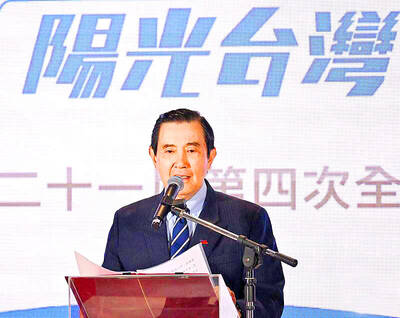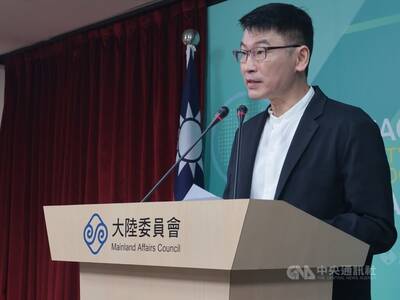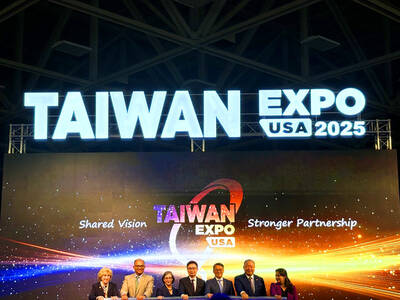Formosa Group is banned from purchasing Gala Television as the government owns small shares in four Formosa subsidiaries, the National Communications Commission (NCC) said yesterday.
The commission said that the group had submitted an application to acquire the television station last month. Based on the application, the group had planned to purchase Gala through its subsidiary Formosa Development.
“We looked at the shareholding structure and found that the four main companies in the group — Formosa Plastics, Formosa Petrochemical Corp, Nan Ya Plastics Corp and Formosa Chemical and Fiber Corp — jointly own Formosa Development,” said Chan Yi-lien (詹懿廉), a specialist at the commission’s communication management department. “Among these companies, we found that the government owns stakes of 0.01 percent to 0.03 percent through investments by four major state funds, which would give the government indirect ownership of a media outlet. This is banned under the regulations.”
The Cable Radio and Television Act (有線廣播電視法) stipulates that the government and political parties may not directly or indirectly invest in cable, radio or television systems, regardless of how small the stake is.
Although the commission is in the process of changing this “unreasonable situation” by drafting a new digital convergence act (數位匯流法), Chan said the commission is unlikely to approve the acquisition.
“We have to obey the law and I am afraid that there is no wiggle room,” she said.

‘ANGRY’: Forgetting the humiliations and sacrifices of ‘the people of the Republic of China’ experienced disqualified Lai from being president, Ma Ying-jeou said Former president Ma Ying-jeou (馬英九) yesterday criticized President William Lai (賴清德) over what he called “phrasing that downplayed Japan’s atrocities” against China during World War II. Ma made the remarks in a post on Facebook on the 80th anniversary of the end of World War II. Ma said he was “angry and disappointed” that Lai described the anniversary as the end of World War II instead of a “victory in the war of resistance” — a reference to the end of the Second Sino-Japanese War (1937-1945). The eight-year war was a part of World War II, in which Japan and the other Axis

The Mainland Affairs Council (MAC) yesterday announced a ban on all current and former government officials from traveling to China to attend a military parade on Sept. 3, which Beijing is to hold to mark the 80th anniversary of the end of the Second Sino-Japanese War. "This year marks the 80th anniversary of the end of World War II and the Republic of China’s victory in the War of Resistance [Against Japan]," MAC Deputy Minister and spokesperson Liang Wen-chieh (梁文傑) told a regular news briefing in Taipei. To prevent Beijing from using the Sept. 3 military parade and related events for "united

‘OFFSHORE OPERATIONS’: Also in Dallas, Texas, the Ministry of Economic Affairs inaugurated its third Taiwan Trade and Investment Center to foster closer cooperation The 2025 Taiwan Expo USA opened on Thursday in Dallas, Texas, featuring 150 Taiwanese companies showcasing their latest technologies in the fields of drones, smart manufacturing and healthcare. The Taiwan External Trade Development Council (TAITRA), the event’s organizer, said the exhibitors this year include Hon Hai Precision Industry Co (Foxconn), the world’s largest contract electronics manufacturer; AUO; PC brand Asustek Computer; and drone maker Thunder Tiger. In his opening speech, TAITRA chairman James Huang (黃志芳) said he expected Texas to become a world-class center for innovation and manufacturing as US technology companies from Silicon Valley and Taiwanese manufacturers form an industrial cluster

A 20-year-old man yesterday evening was electrocuted and fell to his death after he climbed a seven-story-high electricity tower to photograph the sunset, causing a wildfire on Datong Mountain (大同山) in New Taipei City’s Shulin District (樹林), the Taoyuan Police Department said today. The man, surnamed Hsieh (謝), was accompanied on an evening walk by a 20-year-old woman surnamed Shang (尚) who remained on the ground and witnessed the incident, capturing a final photograph of her friend sitting atop the tower before his death, an initial investigation showed. Shang then sought higher ground to call for help, police said. The New Taipei